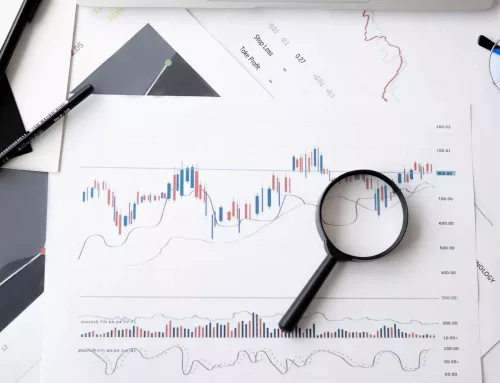INVESTMENTS
Buying In On The Dip
During COVID-19
Schedule a Complimentary Financial Review
Believe it or not, buying in during a dip in the market may be the perfect opportunity to pursue an investment you have considered for some time.
Due to the COVID-19 pandemic, the economy has taken a bigger hit than many have seen in their lifetime. While these are tricky times, the smart move would not be to wait it out, but to take advantage of the opportunities presented. That’s where buying in on the dip comes in. A dip in the market can lead to those great opportunities that work out in the long term, so long as you are informed, optimistic, and watchful. Here are three reasons why you should buy in during a dip in the market, as well as what to look out for and what to avoid.
After reading this blog, if you are interested in making an investment, please feel free to contact our advisors at Park Place Financial. We would be glad to assist you and work with you to take advantage of the opportunities available during this time.
What Does “Buy In On The Dip” Mean?
“Buy in on the dip” means that you are opting to buy a stock whose average price has been lowered due to temporary market setbacks. It may seem counterintuitive to invest on something new and risky when the economy is not doing well, but here are three reasons why you may want to and should.
3 Reasons Why You Would Want To Buy In On The Dip
You’re Optimistic!
Buying in on a bearish market is only so good unless you have faith. Yes, times are currently difficult due to the uncertainty of the coronavirus. The economy has taken a severe hit due to stay-at-home orders and many consumers are focusing on their basic needs over luxury items for the time being. However, if you keep an eye on the market and invest in the right types of opportunities which we will discuss later on, faith in the market’s recovery may not be a bad reason to buy in on the dip.
Start Low, Aim High
You may want to buy in on the dip because it is possible to make greater returns during a downturn in the market than an upturn in the market. When the market is down, stocks have potential to gain in value since they are starting from a lower point, and everyone loves a bargain that pays off in the long run. Market plunges present buying opportunities for some investors and if you ever needed a clear sign to invest, here it is.
Invest In Yourself
Investing in yourself is another great reason to buy in on the dip. What we mean by this is if you feel confidently that circumstances will take a turn for the better, you may want to invest in yourself by buying in on the dip, so as to be ahead of the game when the market returns. As we’ve mentioned, confidence, being watchful and optimistic, but well-informed, are all good traits to continue during a dip in the market should you want to invest.
Should I Buy Stocks Right Now or Wait? Why Not Both?
Buying stocks right now is a good idea for investors with a long-term idea of what they would like to accomplish and have some idea of how they want to get there. As we’ve mentioned, if you believe the market will recover and want to invest in yourself, buying on the dip could be for you. However, everyone experiences doubt, so if you’re wondering if you should invest now or wait, why not do both? Consider staggering your investments out over time rather than going in on one investment all at once. Minimize your risk while still investing in an opportunity that you find promising.
Bigger Risk Investments
Now, you might be asking yourself which types of stock have the highest risk when buying on the dip. To that, we say avoid investing in companies that have cyclical, speculative, or highly leveraged stock.
Cyclical Stock
Cyclical stock includes companies that manufacture high-end cars, furniture, or clothing. When the economy falters, consumers cut back spending on these types of products. They’re considered luxury items or non-essentials. Consumers reduce spending on things like travel, eating out, and the like because they want to save in anticipation of further struggle — or in the case of COVID-19, most flights have been canceled, people are not using their cars as frequently, and restaurants are closed due to stay-at-home orders. Because of this, cyclical stocks in these industries tend to suffer most and are less attractive investments for investors during a dip. However, when the market recovers , cyclical stock can also have the greatest upswing and make a greater comeback than before.
Speculative Stocks
Speculative stocks consist of rare materials stocks, pharmaceutical stocks, penny stocks, emerging market stocks, and more. They’re considered to have great potential that hasn’t been tapped into yet by investors, but as a result speculative stocks also perform the worst during an economic downturn. They’re subject to speculation, hence the name, and can be unpredictable especially for a young investor buying in on a dip. We might recommend avoiding this risk when considering buying in on the dip.
Highly Leveraged Companies
At this time, investors may want to avoid buying in on highly leveraged companies. The reason for this is these types of companies have large debts that they are unable to pay back due to the dip in the economy. They struggle paying their debts at this time and with the increased interest payments, they have trouble keeping up. The sudden decrease in revenue doesn’t help either. The chance of bankruptcy is higher for some companies than those with lower debts, which leads us to investments you would want to make during a dip.
Good Investments To Make During a Dip in the Market
Unlike the above types of stocks and companies that pose a higher risk during a dip in the market, buying in on companies with low-debt and good cash flow even during a time of saving and uncertainty is a good investment to make. The three investments to consider during a dip in the economy are recession-resistant industries, strong balance sheets, and counter cyclical stocks.
Recession-Resistant Industries
There are industries which, despite trying times, perform well and are considered recession-resistant. Among these include, but are not limited to, essential services like grocery stores, “staples” stores that supply basic needs, discount stores, alcohol manufacturers and liquor stores, and funeral homes and services.
These industries given their essential nature are not only necessary but vital in times of economic downturn, and tend to carry on regardless of the state of the economy because of the nature of their operations. No company is completely recession-proof, but the above industries typically see strong performance even as unemployment spikes and consumer confidence falls. These types of industries thrive in an economy even when people do not have money to spend and could be a good type of investment to add to your portfolio.
Strong Balance Sheets
A company’s financial reports can help you determine if they have low debt, healthy cash flows, and are generating a profit even during a time like the COVID-19 outbreak. Look for companies who are managing their debts or have a strong balance sheet to back up their costs, profits, and more.
Counter-Cyclical Stocks
A counter-cyclical stock is a company that belongs to an industry or niche with a financial performance that counters the state of the economy, meaning while stocks of cyclical companies fall, counter-cyclical stocks perform well. However, a risk of this is that once the economy turns for the better , these types of stock will not do as well as per their nature. It is difficult to find good examples of counter-cyclical industries as company businesses and their value chains become intertwined.
In Conclusion: Why Not Buy In On The Dip?
At the end of the day, good businesses with strategies for when the economy is doing well or doing poorly are companies you want to keep your eye on.
Buying in on the dip is about timing — timing the state of the market and timing for yourself. If you are watchful of the market, and ready to invest in yourself for the long term and believe in a particular company, then buying in on the dip could be the way to go.
Don’t be afraid to buy in on the dip because the current state of the economy may be ambiguous. Good investors look ahead, and if you’re still not sure, work with a financial advisor from Park Place Financial. We have years of experience and can help you to make informed decisions about your financial future, whether it be during the dip or the market’s recovery. Contact us today to get started!




